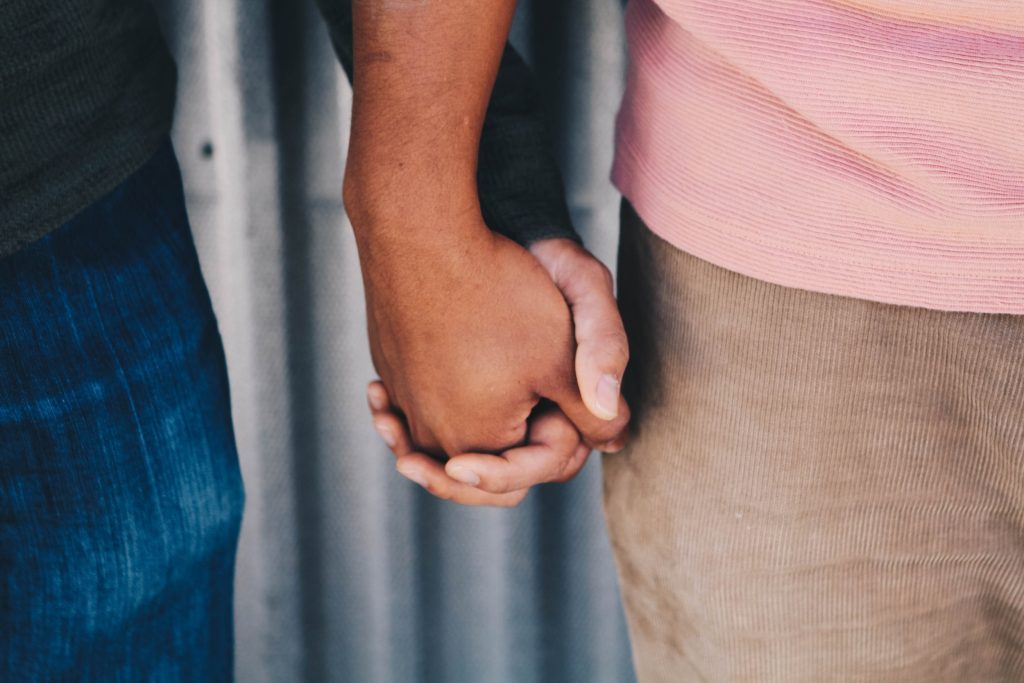ROY, FAMILY OF 4, CAMEROON

My story started long ago when I escaped to Hong Kong and met other refugees here from different parts of the world. We all have different stories to tell but have a common fear, the fear of persecution and death. This fear increases as social stigma and prejudices towards refugees become more prominent. The threat of deportation back to where they were persecuted arouses pure terror in the hearts of refugees everywhere. Their hopes start to fade and they would rather live on the streets than face the prospect of being deported.
People like me who decided not to feel bad about our situation focused instead on fighting back and holding on to our dreams. I did my best to integrate into mainstream society, learning the language and the culture, and loving the people and society. I also attended local gatherings and tried to understand why certain societies are hostile to refugees. I noticed one thing, they do not understand what refugees are. When different cultures come together, the host culture may sometimes feel threatened. I realised later that locals do not really hate refugees, they just do not understand who these people are and why we are here. From then on I adopted the strategy of going out and sharing our stories. Even now I reach out to schools, community events and individuals just to raise awareness about refugees.
There is an ever-present misconception about refugees. Some media representatives and politicians turn against refugees, doing their worst to paint them in a bad light. They create negative labels to drive people away so that nobody would want to support them. If you did offer support, you live in fear of being singled out by society, shunned by those who are ignorant to the situation. Many locals have fallen into this trap; they care about refugees but are afraid to break through the social prejudice and stand up for us.
Refugees are everywhere, globally. In the past, some that were rejected by the Hong Kong government have been accepted by other countries like Canada, US, Australia and New Zealand. The same people, the same story, rejected by one authority yet accepted by another. There are many refugee stories, and mine is one of the rare ones that has a happy ending. I received Permanent Residency in Hong Kong after my story reached a lady who showered me not with prejudice, but with love and compassion, because she knew my story and understood who I really am.
This lady took the heat from Hong Kong society because of her convictions, much like a refugee. She heard hate speeches and some of her friends deserted her. Despite it all, she proved to the world that neither a person’s skin color nor social status matters. What matters is his or her personality and reputation. This woman met me at the lowest point of my life, the moment when I thought my hope was completely gone. She took the risk no person her age would normally take and broke the wave of social stigma. I still remember the day she stood her ground against a huge man who said nasty things about me. She defended me with all her passion. I realised then that in society not everyone hates refugees. This reinforced words my father once told me, “Not everyone will love you and not everyone will hate you. Let those who love you influence your life, and learn from those who hate you to do better.”
I experienced the meaning of true love in a society that initially rejected me. I found a young woman whispering true love into the ears of a young man. We both vowed to make Hong Kong a more welcoming place for migrants of all kinds. We are both engaged in a peace-making project to remove the social stigma that society imposes on refugees. Today I can bring the message of love to Hong Kong because this society also brought the message of love into my life. She is my wife.
I believe in humanity. People like my wife, people like you, people who are far stronger and more influential than she is. People who embrace diversity and have compassion for the weak. We need people like you who will stand up and speak loudly for refugees and social justice in this city. If my wife can stand up for us, you can stand up even higher.
The refugee crisis is international in scope, but here in our own backyard it is our responsibility as justice-loving people, to help the thousands of refugees affected by war, persecution and human right abuses. Social inclusiveness is a culture that we all need to cultivate and embrace in this day and age. We must nurture a culture without prejudice to race, age, gender and beliefs, a culture that sees the world as one big community.
As Branches of Hope’s Manager for Refugee Opportunity and Development Programme, I am happy to contribute in transforming the lives of hundreds of refugees in our community and making our world a better place for all.